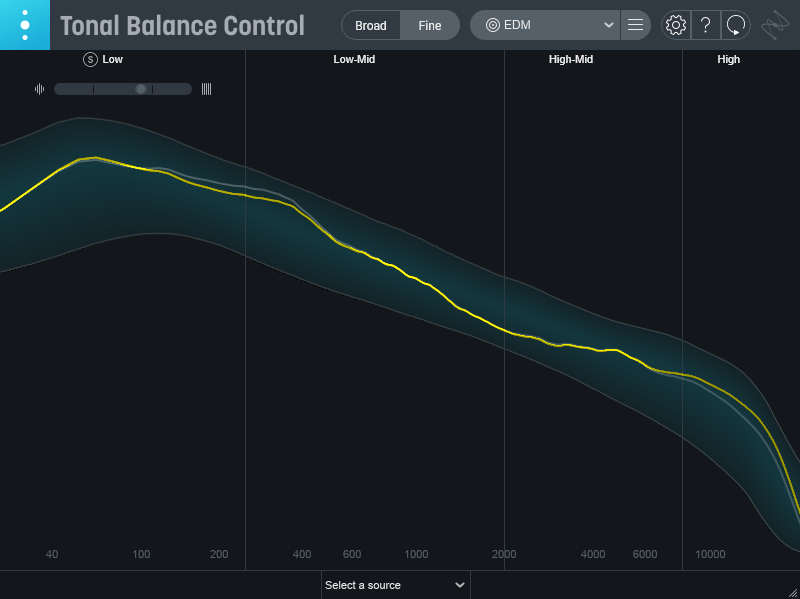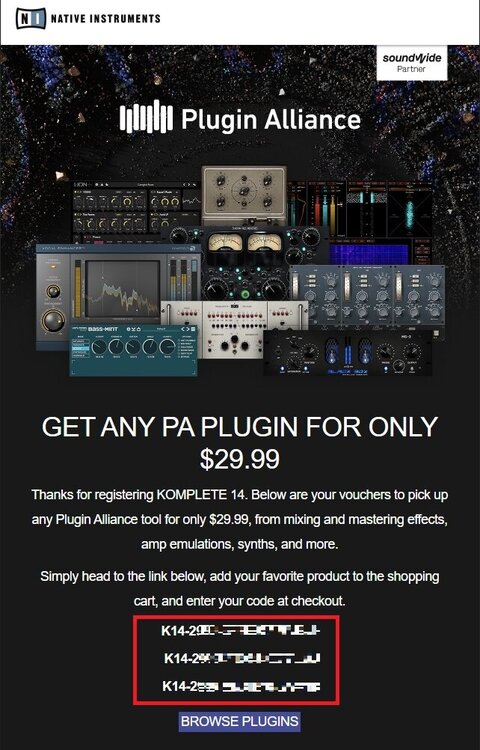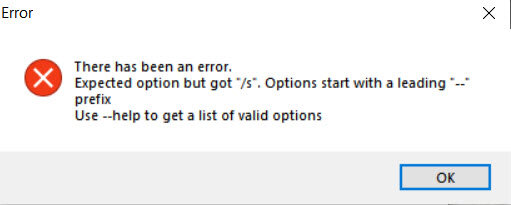-
Posts
2,705 -
Joined
-
Last visited
Posts posted by antler
-
-
2 hours ago, MarcL said:
There is just one single case where it would be an advantage to use iLok: If iZotope would go belly up (I know, it is not so likely for such a big company, but still not impossible), then it would still be possible to use their products on a new machine with iLok, whereas with machine authorization your lost!
Most companies (say they) will provide all users with an unlocked version of their software if they pack up. I remember Accusonus did when it decided to discontinue their product line. Whether other follow through if something unfortunate happens to them will (probably) be dependent on their circumstances.
-
 1
1
-
-
I've used iZotope products for years and have never had a problem with their copy protection system. (I don't use iLok.)
-
 1
1
-
-
2 hours ago, Wibbles said:
That's as far as I went .... what the **** is "Cinematic Cyberpunk"?
Minor-key synthy sounds with sub-bass drops, whooshes, and slams? (Just a guess)
-
 1
1
-
-
17 hours ago, PavlovsCat said:
I found this freebie, and just about all of the freebie libraries I've tried from Sonixinema to be the kind of freebies I immediately delete. None compelled me to want to buy the full sample libraries they came from. They didn't convey compelling, great sounding sample libraries -- even though the full libraries might indeed be that. They were just novelties of no value to me as a user of sample libraries or as a decision making tool to decide if I wanted to purchase the ful library.
The thing is, I get the impression that you're after libraries of realistic sounding playable instruments; Saxophone Explorations looks more like an abstract soundscape library. I don't think it's the frivolous bits of a sampled saxophone emulation - it's a different category of library.
-
 1
1
-
-
-
3 hours ago, PavlovsCat said:
I don't think there was anything in the list I didn't have that I wanted. Although I'm always open to suggestions.
The channel strips are pretty good. I quite like the Focusrite one, but I've seen the AMEK get lots of praise (I personally haven't tried it). The Shadow Hills are pretty good on the master bus (make sure you activate the sidechain to let the lows go thorough if its pumping). I've seen praise for the elysia alpha compressor too.
-
 1
1
-
-
52 minutes ago, Bruno de Souza Lino said:
GPLv3 5.c explictly states that all works based on code under the license must also be licensed under GPLv3, which is why this license is said to be viral. Sure, there's another code base from Jatin called "AnalogTapeModel," but that's also licensed under GPLv3.
Not sure where you're seeing that; presumably on GitHub? Regardless, it just means that the code/binary available there is licensed under GPLv3. As the copyright owner, Jatin owns the code and can do what he wants with it; he is allowed to license it to anyone under any license he chooses. I'm fairly sure that if anyone contacted him and asked for a non-copyleft licence, and offered an amount of compensation he deems appropriate, he would happily grant them a licence that supersedes the publicly available one. That's one of the perks of owning the IP.
-
 1
1
-
-
Giving this a bump as this is (apparently) the last time Omnidrums will be available for purchase.
-
For anyone still waiting for their PA vouchers, NI are probably just inundated right now. I just received an email from NI with my PA vouchers; I bought from Best Service a week ago.
-
 1
1
-
-
22 minutes ago, kitekrazy said:
That will happen if you use NA 1. This should be labeled Ozone 10 NI Edition, It creates a folder called Izotope Pro in your Izotope folder. It will not show up in Portal, vst3 only, no standalone. To upgrade to 10 Advanced via NI is $129 where if you have 9 Advanced the upgrade is $99 from Izotope.
That sucks. I think when you see that dialogue, the setup program will still be running. You can probably find its path by looking in Task Manager and finding its .exe location. Make a copy, and then you should be able to run it separately.
-
 1
1
-
-
5 minutes ago, Brian Lawler said:
I think that's an iZotope installer bug that's been there forever. I'm guessing your install path has spaces in it. It's not expecting any and interpreting anything after a space character as a command line switch.
Try checking to make sure your install path doesn't have any spaces.
-
 1
1
-
 1
1
-
-
3 hours ago, telecode 101 said:
yes. all true. but my point is, i never use 75% of what I paid for. But NI took the money. Will I ever use those orchestral sampled instruments? probably not. I dont do sound track or scores. i just make rock and country folk song demos with other guys i work with.
Fair enough. I just didn't want people who've never looked at Komplete before to get the wrong idea - there are some companies where you have to download your purchase fully or pay for download costs after a certain amount of time.
-
 1
1
-
-
15 hours ago, telecode 101 said:
Or do you spend $200 for a whole bunch of things you may or may not use all of them. But they will take up space on your system and stay there forever and ever.
They only take up as much space as is needed: you can choose to install what you want, when you want. You can also remove it and re-install later if your project requirements change.
-
 2
2
-
-
UI reminds me of Cakewalk Pro Audio 8
-
 1
1
-
-
6 hours ago, Technostica said:
I think that with version 14 they finally stopped offering a HDD boxed product, even in Europe.
Too bad - I was looking forward to a free backup drive.
-
Baby Audio... oh wait, that's already taken...
-
 1
1
-
-
NI Feel It!
in Deals
2 hours ago, Magic Russ said:I highly doubt that the algorithms were written to determine if any loop comes from a royalty free library. Even if they were, google would have to invest in a lot of libraries to figure out that. I would also guess that the algorithms are focused more on melodic content because otherwise they would have a ridiculous amount of claims generated.
I didn't mean the loop library itself so much. More like Artist A publishes a song that uses a (melodic) guitar riff loop. Then Artist B uses the same loop in a different song and tries to publish it. And then some (possibly AI powered) algorithm matches Artist B's song to sound the same as Artist A's.
Edit: but yes - I guess there's some threshold, otherwise there'd be a huge number of claims.
-
No doubt these are good, but they're pretty pricy. I wonder how they'd compare with SWAM Saxophones, where you could get the whole bundle for less than the price of 2 from MOJO.
-
NI Feel It!
in Deals
4 hours ago, Carl Ewing said:Relax about loops as well
Is there any danger about getting flagged for copyright infringement (e.g. on YouTube) when using loops and your song sounds identical to someone else's?
-
50 minutes ago, kevin H said:
Haha I did a super obvious double take and had to re-read title because read it as “David - former barbarian cello player” 😂
Having been a barbarian for much of his life, David had an epiphany one day and decided to take an increased interest in cultural arts. He discovered that he subconsciously loved the sound of a cello playing its slow, heartfelt, and poignant melodies. Hearing it in the distance during one of his hunts triggered something deep; something primal to his core. He yearned to become as one with something that could simultaneously be so beautiful and soul-destroying to hear.
Oh wait... We're not talking about a former barbarian are we?
😁😁😁
-
 4
4
-
-
1 hour ago, PavlovsCat said:
Yep. I only learned that last night. Clearly, I need to learn more about Cakewalk's Pro Channel. Do you think it's any good?
I'm probably not the best person to ask about that now, as I migrated to Studio One (to integrate with my Faderport) when Sonar went shaky. However, based on what I remember, I'd say go with it unless you find a reason to not. I thought it sounded pretty good, and there were four different modes that you can use to configure the EQ curves (based on EQ curves of different consoles).
Reasons that you might not want to use it include:
- You want an EQ that imparts a special 'colour'.
- You're using a channel strip (e.g. one of the PA ones/Neutron/other) that already has an EQ and you'd rather use that as your mixing (mini) ecosystem (along with its matching compressor, etc).
- You have another EQ that fits your workflow better.
-
 1
1
-
10 hours ago, MusicMan said:
Just for another perspective, I would use both of these two plugins differently.
True:Balance I would use even more in the mixing stages as if the bass was way out, it would be better to adjust just the bass and the kick in the mix, than to EQ correct over the whole track in mastering. I would balance all of the individual items as well of course, but it might be helpful as a quick check to make sure the foundations are right. Bass is often the hardest to monitor correctly, so that's where this is helpful if that is in the ballpark before you go into your detailed mix and then just use it to periodically check as you're going.
What the video is saying to a certain extent is true, in that once the mix is heavily limited/compressed the tonal balance can change, but actually the variations he's pointing out I believe are pretty small when you take in the metering. You can check this out by simply increasing your bass by 6dB and see how much the curve changes (spoiler.. it's not that huge). Those tonal changes he's pointing out at a guess are about 1dB or less.
I would simply run the mix through a limiter before looking at the balance. That will tuck some of the louder elements that can affect overall tone in and more closely represent what the final master may sound like. I started doing that a while ago anyway and it's a good check. I use PSP Xenon as it's light on resources and very minimal latency so great for the mixing and production stages.
True:Level I would use in the opposite way, in that I would use it predominantly in mastering, but then also occasionally in the mixing phase just to see what breaks up first and how things sound when you're trying to push for competitive levels for that genre. A lot of the things that help achieve of good level of loudness are done in the mix itself.
In terms of referencing, I personally like the idea of trying to mix like there will be no master and then aim to get the balances as close to how you want it to sound when released, so I would want to compare unmastered to mastered as well.
Interesting. This gave me pause for thought.
I took a recent project that I had the bounces for during the (raw) finished-mix and master stages. I dragged them both into a new project - one on each track - and put an instance of Tonal Balance Control on both. During a full section of the song, I did a screen capture and overlayed the two to see the difference. This is the result:

With some post-image colour manipulation, the raw mix is shown in the original white colour (slightly blue from the overlay), and the mastered version is yellow. Though bear in mind my typical mastering chain isn't too heavy either:

-
6 hours ago, PavlovsCat said:
Then I came across another article, this one by Craig Anderton comparing the Sonitus EQ to Cakewalk QuadCurve -- a plugin I never even heard of before.
Isn't QuadCurve the EQ that's built into the Pro-Channel?
-
 1
1
-
-
10 minutes ago, PavlovsCat said:
I suppose, for me, I could always tracks through Ozone first. What do you think?
Right; I understand. To be honest, I hadn't thought of it that way.
Personally, I wouldn't use this type of tool at the mixing stage. At mixing, the main aim is to make sure that all parts of the song are as balanced and audible as they should be (e.g. muffled backing vocals probably shouldn't be made clear enough such that they compete with the main vocals). And that's it.
I don't really see a point in measuring levels at mix time. The only thing I would do level wise is make sure that nothing is clipped. I'd even say don't put a compressor on the master bus at mix time (but if some pro says otherwise, feel free to go with their advice).
Mix-wide (potential multiband) compression, EQ, stereo width adjustment, and limiting belong in the mastering stage. As they'll modify the frequency distribution, the graphs will look quite different pre and post mastering.
All of this is to say that these types of tools might not be that useful at the mixing stage. I definitely use them when mastering though. But that's just a reflection of how I use them.
-
 1
1
-





Imaginando 9th year birthday.
in Deals
Posted
I thought VS looked interesting, so I watched a few videos on it a while ago. Note that things may have changed since those videos were made, but VS is (or was at that time) aimed primarily at live performance - there is no way to export a video synced with your song. I seem to remember that one of the suggested workarounds was to get a screen recorder and record a real-time playthrough.